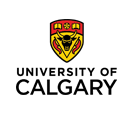- Associate Professor (Teaching) Emeritus of Drama
Heery Lynn
Research Interests
Currently Teaching
Biography
Mr. Lynn holds a BA and MA in Dramatic Art from the University of California at Berkeley and an MA in English from the University of Warwick in England. He also has done graduate work in Drama at the University of Toronto.
He has worked as an actor, director, producer, dramaturge, critic and writer in both professional and academic theatre across both the United States and Canada. He has also held a number of administrative positions with the former Faculty of Fine Arts at the University of Calgary and has served locally for many years on the Boards of both the Pumphouse Theatre and Alberta Theatre Projects.
He is presently Senior Instructor in Drama at the School of Creative and Performing Arts, teaching courses primarily in dramatic literature and theatre history. He also supervises the Drama Division’s Professional Theatre Internship Courses.
Research
For many years Mr. Lynn was a regular weekly theatre and film critic for the CBC (Calgary). His critical writing has also appeared in the Canadian Theatre Review and the Calgary Herald. His creative fiction has appeared in Alberta Views.
He has served as host-moderator for the University of Calgary’s Symposium on playwright Tony Kushner, held during Mr. Kushner’s residency here. And he was the chief organizer and host-moderator for the Symposium on the work of playwright John Murrell, held under the joint sponsorship of Alberta Theatre Projects and Theatre Calgary. He served for many years at Alberta Theatre Projects as Vice-President (Production) and as a member of their Artist Advisory Group.
He was invited to address the Annual Meeting of the Professional Association of Canadian Theatres (PACT) on Board Governance, and he has led workshops on Board Governance for other arts organizations.
At the University of Calgary he has directed productions of Ibsen’s Ghosts, Pirandello’s Henry IV, Shaw’s Candida, Racine’s Phaedra, and Strindberg’s Miss Julie. Elsewhere in Alberta he has directed productions of Charley’s Aunt and You’re A Good Man, Charlie Brown. Most recently for the university he has enjoyed co-directing productions with students, acting as Associate Director for a musical revue (Mostly Sondheim) and the staged reading of a new work, The Gentlemen’s War by Peter Cochran.
He has worked as a dramaturge for Theatre Calgary’s production of John Murrell’s Memoir and for the university on productions of Wedekind’s Spring Awakening, Betty Lambert’s Jennie’s Story, and a free adaptation by Frank Dobbs of Aristophanes’ Lysistrata. He has also produced Stravinsky’s L’Histoire du Soldat for the university’s Division of Music.
As an actor he has performed in a number of University of Calgary productions, as well as at Alberta Theatre Projects and The World Shakespeare Conference (Vancouver). Prior to his appointment at the university, he worked as an actor and director in Los Angeles, Chicago, Berkeley, and Toronto. He is a member of Actors’ Equity (USA and Canada) and ACTRA.
Teaching
I primarily teach advanced courses in play analysis/dramatic literature (Drama 340, 440, 540), stressing the concept of the text in performance. The format of each course is a combination and lecture and discussion.
Tests are open-book, essay tests on plays studied in class. The tests are designed to offer practice in literary analysis and to develop the student’s ability to construct succinct, persuasive arguments under the pressure of time—a useful skill in life, I believe, but one also essential in a collaborative art form such as the theatre.
The other major assignment is a take-home project that involves writing formal production critiques. The goal of this assignment is to develop the student’s ability to analyze the non-literary elements of theatre (acting, directing, design, etc.), stressing that a play script is most accurately viewed as a “blueprint” for a work of art, not the finished work of art itself, and that the play script comes fully alive only in performance, where it may also be interpreted in many ways by different productions. Accordingly, film and video recordings of texts under consideration are often shown in class and form an integral part of the curriculum.

Degrees
- MA
University of California at Berkeley - BA
University of California at Berkeley - MA
University of Warwick
